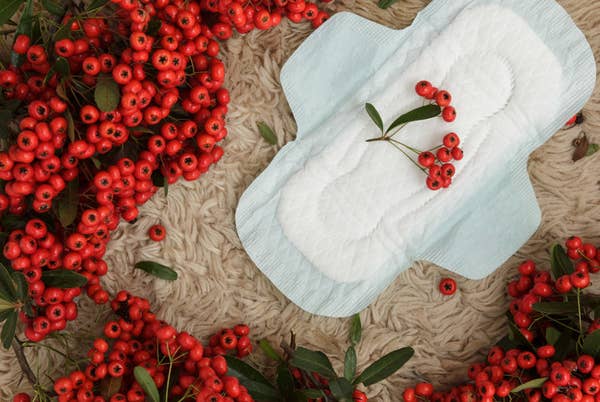Beginners Guide To Your Daughter First Period

Your daughter's first period marks a crucial phase in her life. Her experience of it can change her perspective about her body for years to come. In this light, it is necessary that her first period is dealt with care, positivity and reassurance.
Here are some dos and don'ts to follow when your daughter begins to have her period.
3 Dos For Helping Your Daughter With Her First Period
1. DO: PROVIDE THE RIGHT PRODUCTS
It’s important to have the right products because not having the right products can cause irritation and sensitivity.
Before your daughter’s period even arrives it’s a good idea to have a starter pack ready with a range of pads, tampons, and a few little bags to dispose of them easily and discreetly. You can get our starter pack and period undies for the nighttime. Making sure she has these items with her at home and school will prevent any panic later. Picking out items together is a great way to help her navigate the vast array of options and find the products that suit her. Discuss with her the various pros and cons of different products so that she’s well-informed.
2. DO: BE AWARE OF MENSTRUAL SYMPTOMS
You need to be aware that everyone deals with their period differently and reacts differently.
Everyone’s cycle is different so your daughter’s symptoms might be minimal or challenging so check in to see what support she needs. Be prepared with hot water bottles, chocolate, and hugs. Talk through the way hormones might be influencing their mood and maybe be prepared for a slight test of your patience… Your daughter might be suffering from a whole range of symptoms including cramps, mood swings, tiredness, and skin breakouts and these can be especially intense or distressing while their hormones are still stabilising and she’s dealing with it for the first couple of times.
3. DO: BE PREPARED FOR QUESTIONS
It’s important to ask questions to your daughter so she knows you are there for her and helping her needs.
It’s one thing to talk it through in theory beforehand, once she’s actually going through it your daughter will probably have new questions. It’s important they know they can ask any questions they have, there’s nothing too “embarrassing” to share. You have the chance to make sure they’re armed with accurate information.

3 Don’ts For Helping Your Daughter
1. DON’T: MAKE IT A BIG DEAL
Do not make a big deal, she could be feeling embarrassed or she’s not thinking correctly. Be by her side.
Of course, some daughters may love the excuse to celebrate and see this as a marker of their adulthood but don’t assume this. For many the biological changes, they're going through are enough to cope with without it implicating their whole identity.
2. DON’T: BE ALL DOOM AND GLOOM!
Talk openly so she knows she can always come back to you.
Now is not the time for fear-mongering. It’s important to talk openly so you can bust any myths or misconceptions your daughter might have. Everyone experiences periods differently, and whilst they are painful and difficult for many at some point, it is important to provide a balance of information. A hugely important message is that their period is not a source of shame.
3. DON’T: IGNORE THEIR PRIVACY
Keep the journey you have with your daughter, between you and her. She will appreciate this in the long run.
While it's nothing to be ashamed of, your daughter might understandably want to preserve their privacy. So hold back on the proud Facebook post, at least until you’ve established their personal boundaries. You might have set a precedent of open discussions at the dinner table but it’s up to your daughter who she shares this experience with, including what she discusses with you.

What Is PMS?
It’s important to be there for her. Everyone reacts differently to having a period. It’s important to communicate with your family and friends if you react or overreact so that they know to support you in the right way.
PMS (premenstrual syndrome) is when someone has emotional and physical symptoms that occur before or during their period. This can include mood swings, sadness, breast tenderness, bloating and acne.
These symptoms usually go away in the first few days of a period. Teens typically do not develop PMS symptoms until years after the menstruation cycle starts; some never do. For those who do experience PMS, rest, exercise and a balanced diet can help with the symptoms.
Remind your child that other people have periods, too.
It sounds obvious, but it's worth pointing out. Olympic athletes have periods. So do astronauts, pop stars, authors, teachers, friends, and relatives. Being a part of that story makes you a human being—and that's cool.
